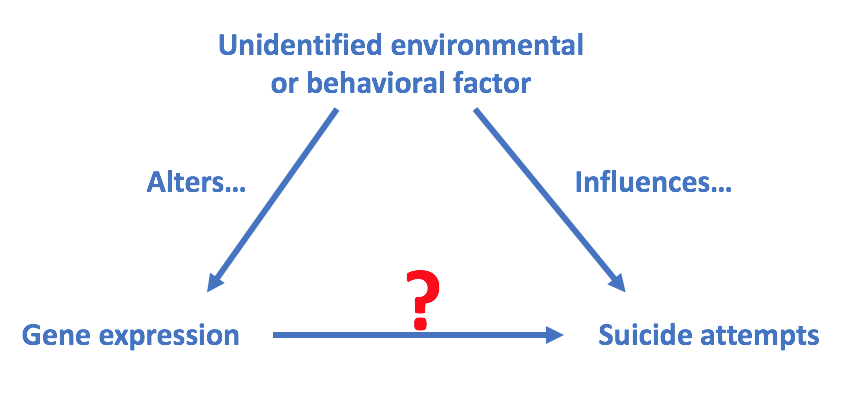Suicide prevention is an inexact intervention. People who have attempted suicide previously, make plans to commit suicide, or talk about committing suicide are often considered high-risk. Some people who kill themselves, however, display none of these behavioral traits. Therefore, it would be tremendously helpful if a biological marker could identify those patients at an elevated risk of suicide.
Though they only compose 8.5% of the U.S. population, veterans make up 18% of all suicides. Complicating matters is that research into this phenomenon often compares veterans who complete suicide to healthy veterans. However, the latter may not be an appropriate control group, since people who commit suicide often have an underlying mental health issue. Instead, it may be better to compare veterans who have attempted suicide to a group of veterans who have not attempted suicide, but have similar psychiatric histories.
To accomplish this, a team of researchers performed a case-control study. They enrolled 20 veterans who recently had attempted suicide and matched them with 20 veterans of similar age, race, sex, and psychiatric history. Then, the team drew blood samples and measured gene expression.*
The team found that genes in three different pathways were differentially expressed between veterans who attempted suicide and those who had not. One of the genetic pathways that showed substantial disruption is known as mTOR, the dysregulation of which has been previously linked to major depressive disorder.
 It must be noted that a study of this nature cannot determine causation. While gene expression differences between individuals suggests a causative role, it does not prove it. The reason is because a third factor (known as a confounding variable), such as an environmental exposure or behavioral trait that alters gene expression, may be the true explanation for suicide attempts. (See figure on right.)
It must be noted that a study of this nature cannot determine causation. While gene expression differences between individuals suggests a causative role, it does not prove it. The reason is because a third factor (known as a confounding variable), such as an environmental exposure or behavioral trait that alters gene expression, may be the true explanation for suicide attempts. (See figure on right.)
Still, the research is important for two reasons. First, biological markers for mental illness and suicidal ideation are important for further research and predicting which people might attempt suicide. Second, elucidation of the molecular and genetic mechanisms that drive mental illness and suicide may allow for improved medical treatments.
*Note: Gene expression was determined by extracting messenger RNA and applying it to a whole-genome microarray. A microarray is a small slide containing thousands of DNA sequences, which represent genes. If a particular gene is expressed in the blood sample, the mRNA will bind to the DNA on the microarray.
Source: J D Flory, D Donohue, S Muhie, R Yang, S A Miller, R Hammamieh, K Ryberg, and R Yehuda. "Gene expression associated with suicide attempts in US veterans." Translational Psychiatry 7, e1226. doi: 10.1038/tp.2017.179. Published online: 5-Sept-2017.




